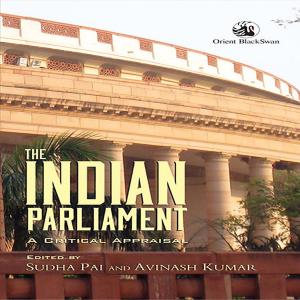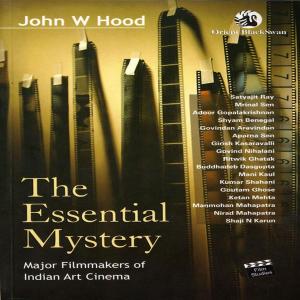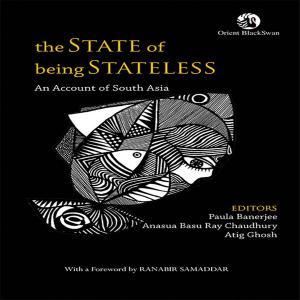| Author: | Madhav Godbole | ISBN: | 9789386392770 |
| Publisher: | Orient Blackswan Private Limited | Publication: | December 15, 2009 |
| Imprint: | Language: | English |
| Author: | Madhav Godbole |
| ISBN: | 9789386392770 |
| Publisher: | Orient Blackswan Private Limited |
| Publication: | December 15, 2009 |
| Imprint: | |
| Language: | English |
Madhav Godbole, Union Home secretary had to seek premature retirement in March 1993, nearly eighteen months before the due date. This event was widely reported and extensively debated in the media. Ending all speculation, the author for the first time, narrates in his memoirs the events that prompted his decision to resign from government service. In a narrative that is both candid and absorbing, the author, a civil servant known for to the world of Indian bureaucracy and realpolitick.Tracing his career form his days as Assistant Collector in the districts of Maharashtra, Madhav Godbole gives the reader an honest and meticulous account of his association with the Indian Administrative Service. In his long and eventful career the author has had to experience the perils and pitfalls of opposing a minister’s say in the award of contracts and of antagonising the powerful house of the Ambanis. He recounts the days of the Emergency, when certain politicians were bent on subverting the Constitution, making senior civil servants pawns in the game of power-brokering. The book also takes the reader through the painful events that lead to the demolition of the Babri Masjid. While commenting analytically on the world of Indian politics, he show an insider’s concern and dismay at the dilution of standards and norms in the civil service.A unique feature of the book is how the narrative shifts from the world of bureaucracy to the author’s personal world, which makes it an interesting read not only for civil servants and political thinkers, but also for the general reader.Madhav Godbole (b. 15.8.36) obtained his M.A. in Economics from Bombay University (1956), M.A. in Development Economics and Quantitative Programming from Williams College, Mass., USA (1968), and Ph.D. in Industrial Economics from Bombay University (1976), Joining the Indian Administrative Service in 1959, the author rose to the position of Union Home Secretary-the post from which he took premature retirement in March 1993. He was also Secretary, Ministry of Petroleum and Natural Gas, Secretary, Ministry of Urban Development, and Joint Secretary, Deportment of Economic Affairs, Ministry of Finance, Government of India. He also worked with the Asian Development Bank, Manila, Philippines, for five years as Senior Industrial Economist and Senior Development Policy Officer. In addition Dr Godbole worked as Private Secretary to Y.B. Chavan, Union Home Minister and Union Finance Minister from 1968 to 1972. He was also Secretary to the Chief Minister of Maharashtra for some time during the Emergency.During his tenure with the Government of Maharashtra, he worked as Principal Finance Secretary and the Chairman of the State Electricity Board.The author has had close association with and involvement in major national issues, the most prominent one being the demolition of the Babri Masjid at Ayodhya in 1992.Dr. Godbole is the author of Industrial Dispersal Policies-A Case Study of Maharashtra (1978), Public Expenditures in Maharashtra (1988), and Rural Employment Strategy-A Quest In The Wilderness (1990).
Madhav Godbole, Union Home secretary had to seek premature retirement in March 1993, nearly eighteen months before the due date. This event was widely reported and extensively debated in the media. Ending all speculation, the author for the first time, narrates in his memoirs the events that prompted his decision to resign from government service. In a narrative that is both candid and absorbing, the author, a civil servant known for to the world of Indian bureaucracy and realpolitick.Tracing his career form his days as Assistant Collector in the districts of Maharashtra, Madhav Godbole gives the reader an honest and meticulous account of his association with the Indian Administrative Service. In his long and eventful career the author has had to experience the perils and pitfalls of opposing a minister’s say in the award of contracts and of antagonising the powerful house of the Ambanis. He recounts the days of the Emergency, when certain politicians were bent on subverting the Constitution, making senior civil servants pawns in the game of power-brokering. The book also takes the reader through the painful events that lead to the demolition of the Babri Masjid. While commenting analytically on the world of Indian politics, he show an insider’s concern and dismay at the dilution of standards and norms in the civil service.A unique feature of the book is how the narrative shifts from the world of bureaucracy to the author’s personal world, which makes it an interesting read not only for civil servants and political thinkers, but also for the general reader.Madhav Godbole (b. 15.8.36) obtained his M.A. in Economics from Bombay University (1956), M.A. in Development Economics and Quantitative Programming from Williams College, Mass., USA (1968), and Ph.D. in Industrial Economics from Bombay University (1976), Joining the Indian Administrative Service in 1959, the author rose to the position of Union Home Secretary-the post from which he took premature retirement in March 1993. He was also Secretary, Ministry of Petroleum and Natural Gas, Secretary, Ministry of Urban Development, and Joint Secretary, Deportment of Economic Affairs, Ministry of Finance, Government of India. He also worked with the Asian Development Bank, Manila, Philippines, for five years as Senior Industrial Economist and Senior Development Policy Officer. In addition Dr Godbole worked as Private Secretary to Y.B. Chavan, Union Home Minister and Union Finance Minister from 1968 to 1972. He was also Secretary to the Chief Minister of Maharashtra for some time during the Emergency.During his tenure with the Government of Maharashtra, he worked as Principal Finance Secretary and the Chairman of the State Electricity Board.The author has had close association with and involvement in major national issues, the most prominent one being the demolition of the Babri Masjid at Ayodhya in 1992.Dr. Godbole is the author of Industrial Dispersal Policies-A Case Study of Maharashtra (1978), Public Expenditures in Maharashtra (1988), and Rural Employment Strategy-A Quest In The Wilderness (1990).















